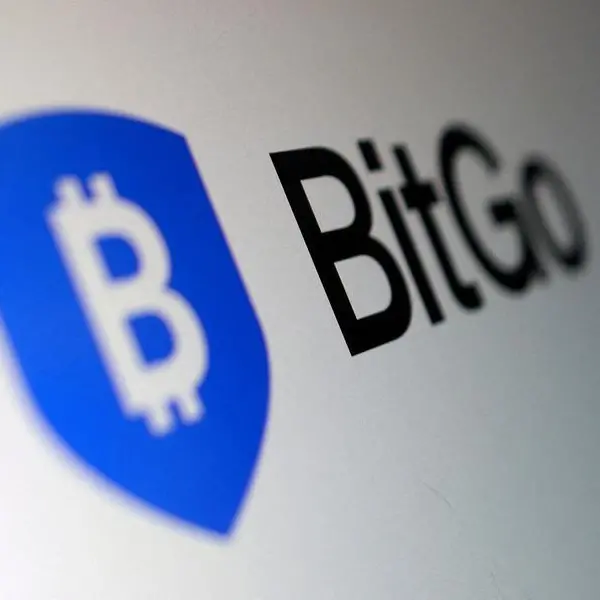PHOTO
For as long as I’ve been covering U.S. Securities and Exchange Commission litigation against crypto targets, the industry has harshly criticized the commission for bringing one-at-a-time enforcement actions as a way to set crypto regulatory policy, instead of engaging in formal rulemaking or waiting for Congress to pass legislation that clarifies when U.S. securities laws apply to digital assets.
In the latest example, a onetime Coinbase Global Inc manager who was accused last year of insider trading by both the U.S. Justice Department and the SEC moved this week to dismiss the SEC’s complaint, arguing, among other things, that he didn't know the Ethereum-based crypto tokens he traded would be defined as securities by the SEC. The ex-Coinbase employee, Ishan Wahi, pleaded guilty on Tuesday to conspiring to commit wire fraud, but even at the plea hearing in his criminal case, Wahi insisted that the relevant tokens were not securities.
“The only certain feature of the SEC’s approach to digital asset regulation is its uncertainty,” argued Wahi’s defense lawyers from Jones Day, Greenberg Traurig and Harris St. Laurent & Wechsler in Monday's motion to toss the SEC's case against Wahi and his brother.
Coinbase expressly said that the tokens Wahi and his brother traded were not securities, his lawyers said, and Congress hasn't told crypto investors which digital coins can be regulated by the SEC. Right now, Wahi argued, crypto users are simply left guessing about their exposure to SEC enforcement — and that's not sustainable.
"At some point," the brief said, "the SEC’s Delphic strategy of revealing one-off securities via enforcement actions has to run up against the basic protections of the legal system.”
The SEC seems to think otherwise. Based on the commission’s filing this week in a crypto law firm’s declaratory judgment suit demanding a ruling that the Ethereum blockchain network and its native Ether cryptocurrency are not securities under U.S. law, the SEC seems to be in no rush to change the “Delphic strategy” that has so enraged crypto defendants.
Hodl Law, which describes itself as focusing on “legal services for digital assets and cryptocurrency,” sued the SEC last November in federal court in San Diego, arguing that the SEC has engaged in “years-long, purposeful delay and obfuscation” in order to extend its regulatory reach over cryptocurrencies. That strategy, Hodl Law asserted, didn't give token-holders fair notice about whether their coins are securities.
Hodl Law cited the SEC's Wahi case in arguing that because of the SEC’s alleged refusal to provide “concrete guidance,” millions of Ethereum users, including the law firm, are in dire need of a declaratory judgment that Ether is not a security and Ethereum deals are not securities transactions. Otherwise, Hodl Law said, Ethereum users have no idea if the SEC will swoop in with an enforcement action.
In Monday's dismissal brief, the SEC offered technical arguments to toss the case, asserting to U.S. District Judge James Lorenz that because there’s no live case or controversy between Hodl Law and the commission, the law firm lacks constitutional standing and the court does not have jurisdiction under the Declaratory Judgment Act.
But that wasn’t all. The SEC also said that it's not obliged to warn crypto users about its interpretation of securities laws.
“Hodl Law has not alleged that the SEC has an obligation to explain Hodl Law’s rights to it under the federal securities laws or to promise not to prosecute it in the future, nor has it pointed to any statute that would impose such an obligation,” the SEC said. “At its core the complaint only displays Hodl Law’s desire for the SEC to promulgate rules around crypto/digital assets.”
The law firm’s “general anxiety about the potential for an SEC investigation and speculation about the SEC’s views of crypto/digital assets,” isn’t a cause of action, the SEC said. Simply put, the commission argued, Hodl Law and all other Ethereum users will just have to wait for the SEC to do whatever the commission decides to do.
That stance is bound to irritate the crypto industry, regardless of the strength of the SEC’s other arguments to dismiss the Hodl Law case.
The SEC declined to comment on the Wahi or Hodl cases. Wahi counsel James Burnham of Jones Day declined to provide a statement.
Hodl Law partner Frederick Rispoli said via email that the SEC’s motion to dismiss “was not forthcoming” about the many instances in which the commission “has attacked digital asset users with after-the-fact enforcement actions.” Those cases – including the Wahi litigation – demonstrate the imminent danger faced by Ethereum users, according to Rispoli.
Several SEC targets, as you probably recall, have tried to persuade federal judges that the crypto assets at issue in their cases did not meet the definition of a security under the U.S. Supreme Court’s 1946 test from SEC v. W.J. Howey Co. To the best of my knowledge, no judge has sided against the SEC, including a federal judge in New Hampshire who delivered a notable win to the commission last November when he adopted the SEC’s theory that a digital currency is a security when purchasers expect the crypto issuer to use its own stash of coins to boost the overall value of the currency.
The next big test of the SEC’s crypto regulatory power is expected to come in its closely-watched case against Ripple Labs Inc, in which both sides have briefed dueling summary judgment motions to U.S. District Judge Analisa Torres of Manhattan.
The Wahi dismissal brief filed on Monday makes many of the same arguments as Ripple’s summary judgment filings. It also, however, provides the first robust explanation of an argument I expect to see more often in SEC crypto cases: SEC enforcement, according to Wahi, is precluded by the Supreme Court’s recently articulated major questions doctrine.
Wahi contends that the new doctrine, spelled out in last June’s West Virginia v. Environmental Protection Agency, precludes the SEC from using enforcement actions to regulate the uncharted crypto industry without any guidance from Congress.
I doubt that argument will change the SEC's mind. We'll have to see if judges buy it.
(Reporting By Alison Frankel; editing by Leigh Jones)




















